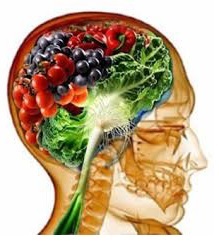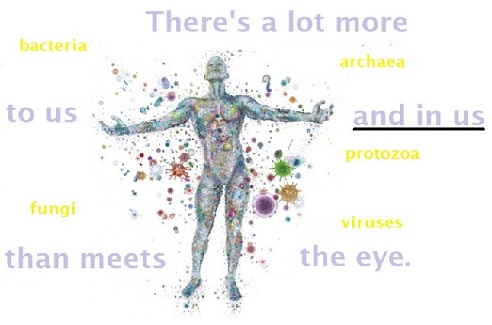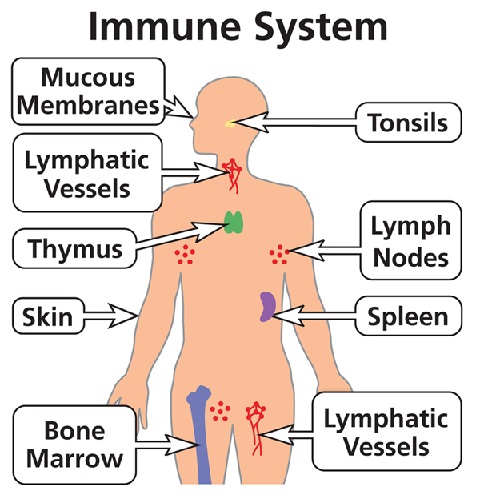
This is part two of this series of quick responses to questions that are asked about plant-based diets. The answers to such questions are truly brief (usually in 75 words or less). The answers are by no means meant to be comprehensive or definitive, of course; rather they are meant to encourage you, the reader, to think about how you would answer such questions yourself. You can click on the photos to get more information on each answer.
Blog Contents
1. Why do some health professionals endorse plant-based diets?
 Some health professionals endorse plant-based diets for the very simple reason that they are healthier than animal-based diets.
Some health professionals endorse plant-based diets for the very simple reason that they are healthier than animal-based diets.
Of course, this would only apply to those plant-based diets which avoid the ubiquitous processed fatty/sugary elements that, unfortunately, form a major part of the standard Western diet.
The latter is widely regarded as being one of the major causes of the rapid rise in non-communicable diseases, such as diabetes, obesity, and heart disease. 1
2. Are all plant-based diets the same?
 All plant-based diets are not the same, although all make plants central to the plate. Plant-based diets include: different variations of vegetarians: lacto-vegetarians (dairy), lacto-ovo-vegetarians (dairy and eggs), ovo-vegetarians (eggs), and vegans (no animal products including honey).
All plant-based diets are not the same, although all make plants central to the plate. Plant-based diets include: different variations of vegetarians: lacto-vegetarians (dairy), lacto-ovo-vegetarians (dairy and eggs), ovo-vegetarians (eggs), and vegans (no animal products including honey).
Pescatarians (fish and/or shellfish), flexitarians (occasional meat, fish, eggs and dairy) and Mediterranean diet (includes animal-foods but plants are a major component) are not strictly vegetarian. WFPB (wholefood plant-based) diets involve only whole plants and no processed foods. 2
3. Are all plant foods healthy?
 All “wholefood” plants that are safe for human consumption are healthful (unless one has an allergy – e.g. to nuts), but not all “plant-based diets” are healthful. In the case of healthy and balanced plant-based diets, evidence suggests that they are protective against a wide range of diseases (including heart disease) and, hence, healthful.
All “wholefood” plants that are safe for human consumption are healthful (unless one has an allergy – e.g. to nuts), but not all “plant-based diets” are healthful. In the case of healthy and balanced plant-based diets, evidence suggests that they are protective against a wide range of diseases (including heart disease) and, hence, healthful.
However, additional research suggests that unhealthy plant-based diets are not protective against such diseases and may, in fact, have distinctly unhealthful effects. 3
4. What affects our gut microbiota?
 Our gut microbiota is affected (both in quantity and quality) by diet, lifestyle factors (e.g. smoking, drinking, exercise, stress), gastrointestinal infections, medications (e.g. antibiotics), and environmental factors (e.g. pesticides, heavy metals).
Our gut microbiota is affected (both in quantity and quality) by diet, lifestyle factors (e.g. smoking, drinking, exercise, stress), gastrointestinal infections, medications (e.g. antibiotics), and environmental factors (e.g. pesticides, heavy metals).
Whilst the gut microbiota is largely established in the womb and during early stages of life, it’s obvious that diet is going to be the major consistent influence, since almost everything we put into our mouths will pass through the GI tract. 4
5. Where are most of our immune cells located?
 Most of our immune cells (around 70%) are located in the gut-associated lymphoid tissues (GALT) in the mucosa lining of the gut inner wall.
Most of our immune cells (around 70%) are located in the gut-associated lymphoid tissues (GALT) in the mucosa lining of the gut inner wall.
They are also located in other principal sites within the GI tract, including:
Peyer’s patches (nodules) in the ileum;
the appendix;
and solitary lymphoid follicles in the colon and rectum. 5
6. With what is dysbiosis associated?
 Dysbiosis is associated with a number of factors, including: food type (e.g. different bacteria thrive with animal-food diets, whilst others – arguably healthier ones – require a rich diversity of plant foods, especially high in MACs or microbiota-accessible carbohydrates); smoking; alcohol; exercise; stress; genetics; ageing; antibiotics/medications; dental hygiene; environmental toxins.
Dysbiosis is associated with a number of factors, including: food type (e.g. different bacteria thrive with animal-food diets, whilst others – arguably healthier ones – require a rich diversity of plant foods, especially high in MACs or microbiota-accessible carbohydrates); smoking; alcohol; exercise; stress; genetics; ageing; antibiotics/medications; dental hygiene; environmental toxins.
Basically, any interruption in the balance of gut microbiota may cause dysbiosis which, in turn, can have diverse effects on the body, including weakening the immune system. 6
7. What is known about autoimmune diseases and diet?
 The relationship between autoimmune diseases (ADs) and diet remain largely unclear, according to evidence-based research. However, it appears that balanced/healthy diets are beneficial. Increased vitamin D is correlated with reduced ADs.
The relationship between autoimmune diseases (ADs) and diet remain largely unclear, according to evidence-based research. However, it appears that balanced/healthy diets are beneficial. Increased vitamin D is correlated with reduced ADs.
Gut microbiota appear to be linked to ADs – e.g. work with pre-/probiotics. Omega-3’s anti-inflammatory role is attracting research interest. Overall, however, few definitive conclusions have yet been drawn about the specific roles of genetics, environmental and dietary factors in the aetiology of ADs. 7
8. Which nutrients from plant foods can reduce dementia risk?
 Plant food nutrients that potentially reduce risk of dementia are varied and, working together, produce a cumulative effect.
Plant food nutrients that potentially reduce risk of dementia are varied and, working together, produce a cumulative effect.
Antioxidants are the family of phytochemicals leading the fight against dementia – reducing oxidative stress caused by free radicals: including vitamins A (beta-carotene in plants), C, E and B3 (niacin – nuts, legumes, grains); flavonoids (a class of polyphenol) such as anthocyanins, resveratrol, catechins and curcumin; sulphur compounds (e.g. from alliums); omega-3 (e.g. walnuts, flax and chia). 8
9. Should nutrition be combined with other lifestyle factors to improve brain health?
 Indeed, nutrition should be combined with other lifestyle factors (internal/external) to improve brain health.
Indeed, nutrition should be combined with other lifestyle factors (internal/external) to improve brain health.
These ‘avoidable’ factors include: – avoiding smoking and binge drinking, alcohol/drug abuse; maintaining a healthy body weight; getting regular physical exercise; avoiding emotional stress; getting sufficient good quality sleep; eating regularly; keeping mentally active; being sociable and ‘involved in life’; maintaining low blood pressure/cholesterol levels where possible through the latter approaches – of course some factors are genetically influenced. 9
10. What have plant-derived foods been shown to improve?
 Plant-derived foods have been shown to improve overall health, including the following: preventing obesity; reducing the risk of a range of non-communicable diseases (e.g. diabetes, cardiovascular disease, certain cancers); lowering cholesterol/blood pressure/triglycerides; increasing energy levels; improving sleep quantity and quality; improving brain function and the symptoms of autoimmune disorders.
Plant-derived foods have been shown to improve overall health, including the following: preventing obesity; reducing the risk of a range of non-communicable diseases (e.g. diabetes, cardiovascular disease, certain cancers); lowering cholesterol/blood pressure/triglycerides; increasing energy levels; improving sleep quantity and quality; improving brain function and the symptoms of autoimmune disorders.
This is partly attributed to plants being high in antioxidants, dietary fibre, vitamins, minerals and countless other phytochemicals all working together to promote improved mental/physical health. 10
References
- https://nutritionfacts.org/topics/standard-american-diet/ [↩]
- https://nutritionfacts.org/2018/02/01/plant-based-is-not-the-same-as-vegetarianism/ [↩]
- http://www.wholefoodplantbaseddiet.com/greggs-vegan-sausage-rolls-why-veganism-can-fail/ [↩]
- http://www.wholefoodplantbaseddiet.com/how-do-plant-based-diets-affect-our-gut-microbiota-part-one/ [↩]
- https://nutritionstudies.org/autoimmune-disease-genes-infection-environment-gut/ [↩]
- https://www.hopkinsmedicine.org/health/wellness-and-prevention/what-are-common-symptoms-of-autoimmune-disease [↩]
- https://nutritionstudies.org/autoimmune-disease-genes-infection-environment-gut/ [↩]
- https://nutritionfacts.org/video/how-to-prevent-alzheimers-with-diet/ [↩]
- https://nutritionfacts.org/video/is-it-the-diet-the-exercise-or-both/ [↩]
- https://www.health.harvard.edu/blog/what-is-a-plant-based-diet-and-why-should-you-try-it-2018092614760 [↩]